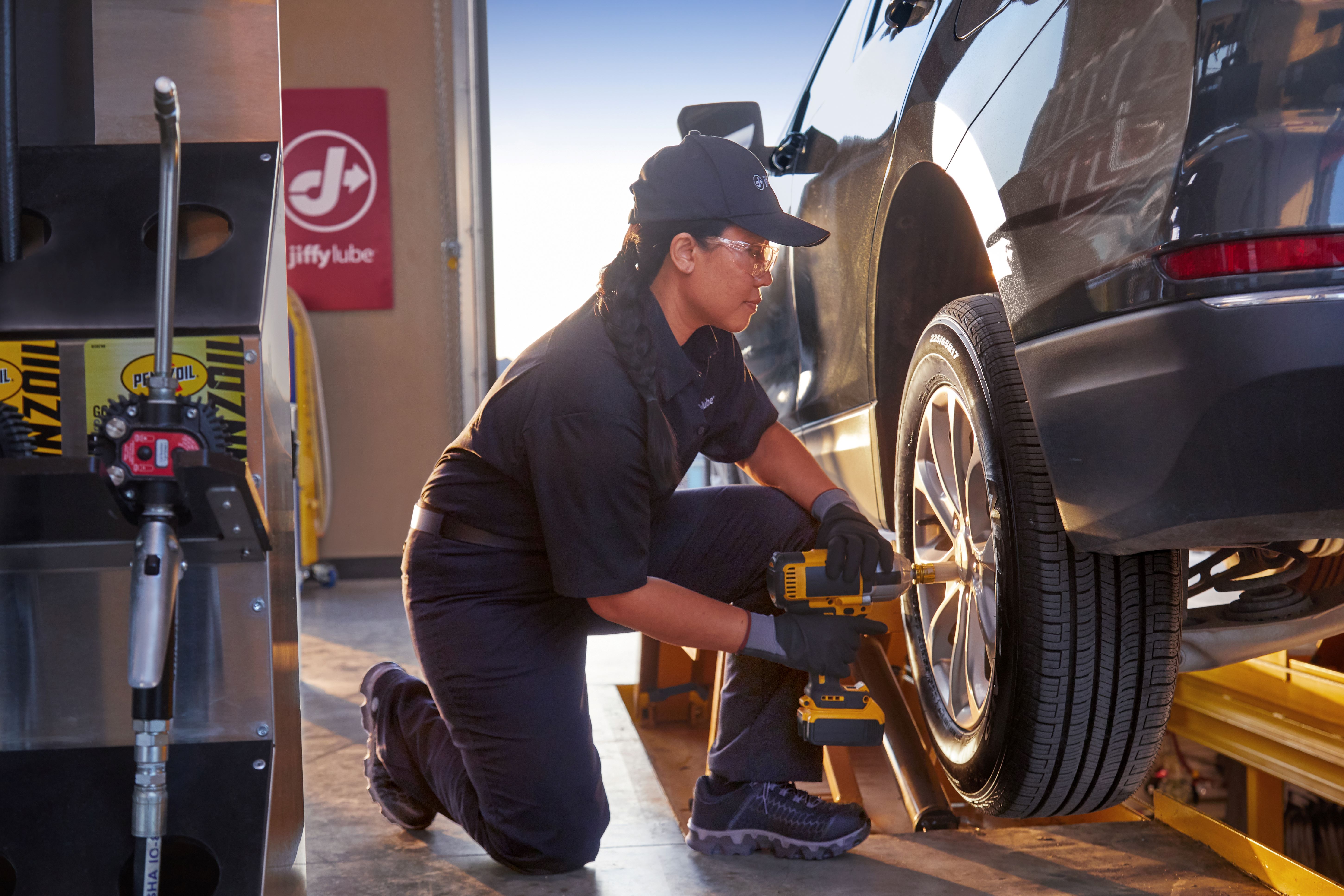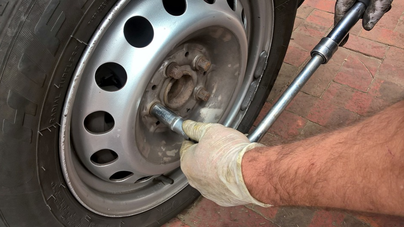Morris Tires: Your Companion for Expert GMC Tires Service
Morris Tires: Your Companion for Expert GMC Tires Service
Blog Article
Tire Service: The Effect of Weather Condition Problems
When it involves guaranteeing ideal performance and safety when driving, recognizing the influence of weather on tire service is crucial. From scorching warm to icy roads, each climate aspect can dramatically affect tire functionality and overall driving experience. By diving right into the results of differing weather on tires, chauffeurs can obtain beneficial insights that may boost their automobile's performance and durability. In this discussion, we will certainly check out the intricate relationship in between weather condition conditions and tire solution, losing light on the significance of weather-specific tire maintenance techniques and considerations.
Heat and Tire Efficiency
When subjected to high temperature levels, tires experience modifications in performance that can considerably affect lorry security and handling. The heat generated from prolonged driving or heat problems triggers the tire rubber to soften, bring about decreased tread life and boosted wear. As the rubber ends up being softer, the tire's grasp when traveling diminishes, affecting stopping ranges and overall grip. In severe instances, too much heat can also cause tire blowouts, posturing an extreme safety and security danger to the lorry and its owners.

Cold Weather Condition Impacts
Cold weather problems can have a significant impact on tire performance and security. As temperature levels decrease, tire rubber can harden, resulting in reduced grip on icy or snow-covered roadways. In winter, tires might likewise lose air pressure much more swiftly, which can affect taking care of and fuel performance. Furthermore, cool temperature levels can cause tire sidewalls to stiffen, raising the risk of damages from fractures or other road threats.
To alleviate the results of winter on tires, it is crucial to regularly check tire pressure and inflate them to the supplier's recommended degrees. Using winter season or all-season tires designed for cool weather condition problems can additionally improve grip and grip on icy or snowy roads. Appropriate tire upkeep, consisting of regular assessments for wear and damage, ends up being a lot more vital throughout colder months to make certain ideal efficiency and safety.
Rainy Conditions Influence
Throughout wet conditions, tire performance and safety and security can be considerably influenced by the wet road surfaces and decreased presence. The tread pattern of tires plays an important function in preserving grip on wet roads. Tires with damaged treads are extra prone to hydroplaning, where a layer of water develops in between the road and the tire surface, bring about loss of grip. To combat this, vehicle drivers should consistently check their tires for ample walk deepness and take into consideration buying tires specifically made for wet problems.
Furthermore, wet weather can likewise decrease exposure, making it testing for motorists to see the roadway in advance clearly (GMC Tire Service). In such problems, it is vital to adjust driving speeds as necessary and preserve a risk-free complying with distance to enable sudden quits. Effectively filled with air tires can also aid in maintaining control on wet roadways get redirected here by supplying better handling and grip
Snow and Tire Security
When driving in snowy problems, having the best tires can make a substantial difference in security and efficiency. Winter tires are made with unique rubber substances and walk patterns to supply far better traction on snow and ice contrasted to all-season tires.

Furthermore, vehicle drivers ought to consider setting up tire chains in severe snowy conditions. Tire chains provide extra traction by grasping the snow and ice, boosting stability and control. It is important to follow maker directions when making use of and setting up tire chains to visit the site stop damages to the tires and vehicle (GMC Tire Service). By choosing the ideal tires, maintaining proper inflation, and taking into consideration added traction help like tire chains, motorists can enhance their safety when browsing snow-covered roadways.
Weather-Related Tire Maintenance
Weather-related tire upkeep incorporates an array of techniques intended at guaranteeing optimal tire feature and durability in different weather circumstances. One key element of weather-related tire maintenance is tire pressure law. Evaluating tire walk consistently and replacing tires when walk wear reaches a certain deepness is crucial for maintaining traction and stability in adverse weather condition.
Final Thought
In conclusion, weather condition conditions have a significant effect on tire efficiency and security. From warmth affecting tire pressure and use to chilly weather decreasing grip, it is vital to think about the weather when preserving and making use of tires.
In this discussion, we will certainly explore the complex partnership between weather problems and tire solution, dropping light on the importance of weather-specific tire upkeep techniques and find considerations.

Report this page